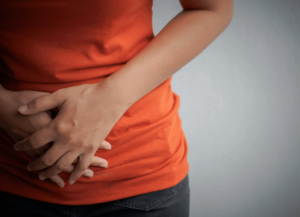Parkinson’s disease is a neurological condition that unfortunately doesn’t have a cure. Traditional pharmaceutical medications show some success keeping symptoms in check (albeit with some debilitating side effects). But recent studies have shown marijuana’s potential to slow the disease.
We’ve compiled the most popular questions from our Answers page about how cannabis can help those suffering from Parkinson’s disease. The answers were provided by nurses and doctors who have a deep knowledge of the marijuana plant and how it works in the body. We hope that their answers shed some light on how cannabis can be an effective treatment for this disease.
FOLLOW US ON FACEBOOK & INSTAGRAM
Q: Can you tell me if cannabis is good for Parkinson’s disease?
Answer:@tatiananp Hello, cannabinoids have been studied for use in treating symptoms, like bradykinesia (slowness caused by Parkinson’s) and dyskinesia (excess movement caused by Levodopa). According to the National Parkinson’s Foundation, the benefits of medical marijuana for the treatment of Parkinson’s disease include a possible improvement in anxiety, pain management, sleep dysfunction, weight loss and nausea. Research suggests that cannabis might be neuroprotective, saving neurons from damage caused by Parkinson’s.
RELATED: A BRIEF HISTORY OF CANNABIS USE FOR PARKINSON’S DISEASE
Q: What strains would you recommend for Parkinson’s disease?
Answer: @drkim Hello, and thank you for the great question.
Numerous studies have been conducted on marijuana and its active components. While not entirely conclusive, the research on marijuana shows promise for people with Parkinson’s.
For Parkinson’s disease, marijuana is thought to provide numerous benefits, including:
- pain relief
- reduced tremors
- better quality of sleep
- improved overall mood
- more ease in movement
Despite the potential benefits of marijuana for people with Parkinson’s, there are also some risk factors involved. THC in marijuana can cause:
- impaired thinking and movements
- hallucinations
- memory problems
- mood changes
So when considering the above, it becomes clear that most of the positive effects cannabis has on Parkinson’s derives from CBD (cannabidiol), whereas most of the possible adverse effects are derived from THC. As such, I would recommend that you seek high-CBD strains.
ACDC is a hybrid strain that I have touted for several conditions which would benefit from a high CBD and low THC content. The cannabinoid content is extremely CBD-dominant, sitting on average at 20:1 in its CBD/THC ratio. An imperceptible amount of THC makes ACDC an outstanding companion for daily medicinal cannabis. ACDC would be my top overall recommendation as treatment for the symptoms of Parkinson’s disease.
A sativa strain I also recommend is Harlequin. Harlequin is one of the most popular CBD strains available. Typically testing around the 5:2 CBD/THC ratio, it exhibits a sativa-dominant alertness with only mild euphoria.
For sleep time, a CBD-heavy indica strain such as Sweet and Sour Widow would be a good choice.
Q: Does THCa interact with medications for Parkinson’s disease?
_ I take Carbidopa/Levodopa for Parkinson’s disease and started taking THCa for chronic sciatic pain. After I started taking 150 mg THCa I started to have a lot of trouble walking; I switched over to a CBD tincture of 600 mg and now I can walk normally again. Do you think the THCa reduced the effectiveness of my Parkinson’s medications? _
Answer: @tatiana According to the National Parkinson’s Foundation, research suggests medical marijuana is an effective way for some patients to manage their symptoms. Furthermore, the neuroprotective qualities of THCa (the precursor to THC) could aid patients with neurodegenerative disorders like Parkinson’s Disease as well as those with dementia. Medical marijuana also has great pain-relieving properties.
Serious drug interactions have not been seen with medical marijuana in combination with any other drug. There have been very few adverse interactions reported.
I’m not sure what could have caused the worsening of your symptoms and subsequently the inability to walk. Everybody is unique and reacts uniquely. Let’s be rational and proceed with caution, if THCa provided a negative response, then stray away from it. If CBD has proven to provide you with positive results, then continue to safely administer. I suggest you collaborate with your primary care provider in order to safely monitor your condition and the adjunctive treatment with medicinal marijuana.
Photo credit: Thomas Hafeneth
If you’re new to cannabis and want to learn more, take a look at our Cannabis 101 post. HelloMD can help you get your medical marijuana recommendation; it’s easy, private and 100% online.






